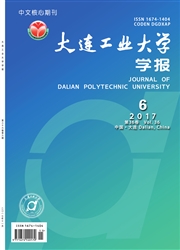

 中文摘要:
中文摘要:
研究了β-桐酸(β-ESA)对人膀胱癌T24细胞的生长抑制作用,阐明活性氧簇(ROs)产生与生长抑制作用的关系。利用MTT法检测细胞活力,DCFHDA荧光探针检测ROS,二硫代二硝基苯甲酸比色法(DNTB)检测谷胱甘肽(GSH)的含量。MTT结果显示,β-桐酸对T24细胞有明显的生长抑制作用,呈时间剂量相关性(P〈O.05);活性氧检测表明β-桐酸可以诱导R0s的产生(P〈0.05);GSH含量检测表明GSH水平显著降低(P〈0.05);加入ROS清除剂N-乙酰半胱氨酸(NAC)可以拮抗β-桐酸的作用(P〈0.05)。实验结果表明,口~桐酸可抑制T24细胞的生长,其机制可能与诱导R0s的产生有关。
 英文摘要:
英文摘要:
To investigate the inhibitory effect of β-eleostearic acid on human bladder cancer T24 cell, and illustrate its relationship with reactive oxygen species (ROS). The cell viability was evaluated by MTT assay, ROS generation was detected with DCFH-DA fluorescent probe, and the contents GSH were measured by DTNB assay. After being treated with β-eleostearic acid, the survival rate of T24 cells were decreased in a time-and-dose dependent manner(P 〈 0.05), 13-eleostearic acid could induce the generation of ROS(P 〈 0.05), GSH contents decreased significantly(P 〈 0.05), and ROS scavenger(NAC) could block the effects of β-eleostearic acid(P 〈 0.05). β-eleostearie acid can inhibit the growth of human bladder cancer cell T24, and the effects of β-eleostearic acid may be associated with the generation of ROS.
 同期刊论文项目
同期刊论文项目
 同项目期刊论文
同项目期刊论文
 Induction of apoptosis by c9, t11-CLA in human endometrial cancer RL 95-2 cells via ER-mediated path
Induction of apoptosis by c9, t11-CLA in human endometrial cancer RL 95-2 cells via ER-mediated path 期刊信息
期刊信息
